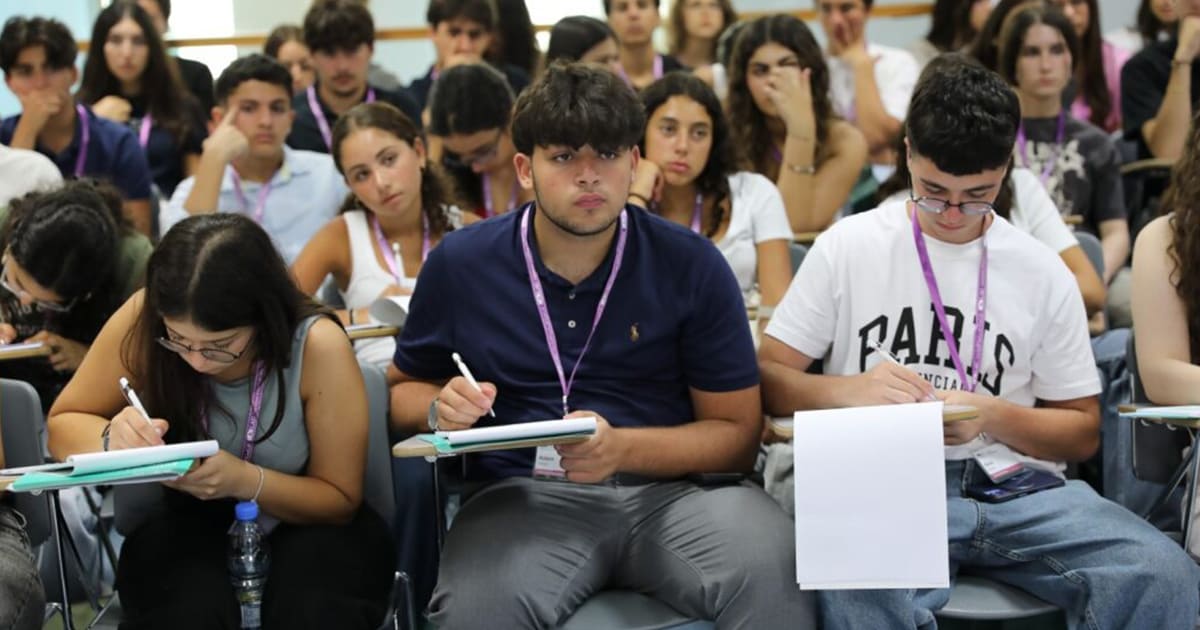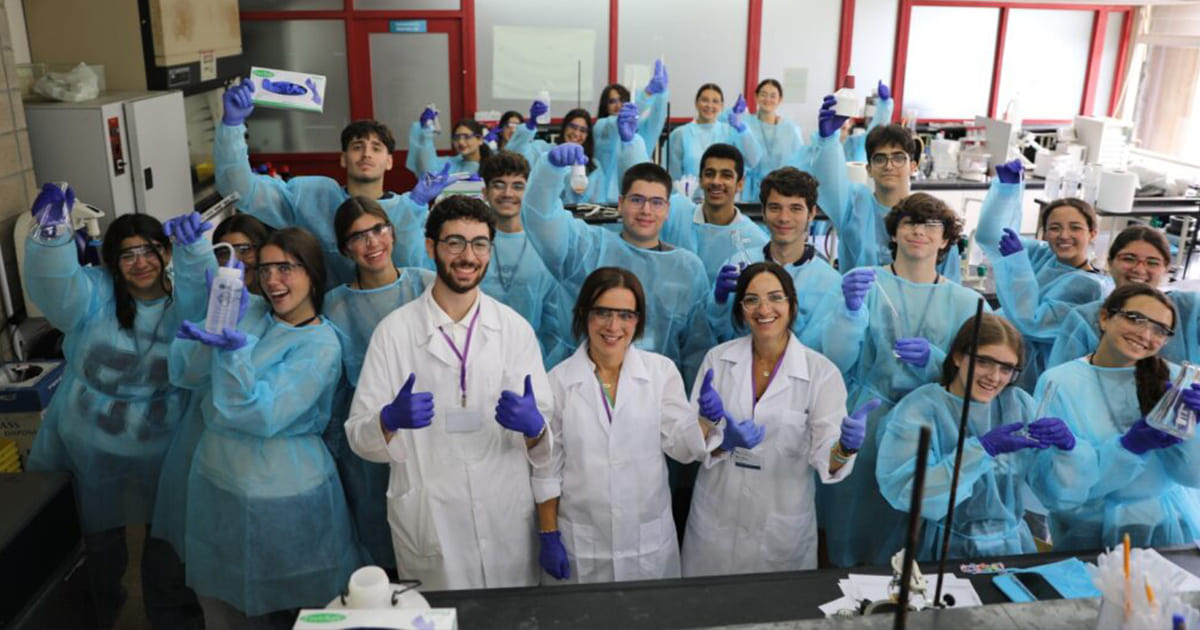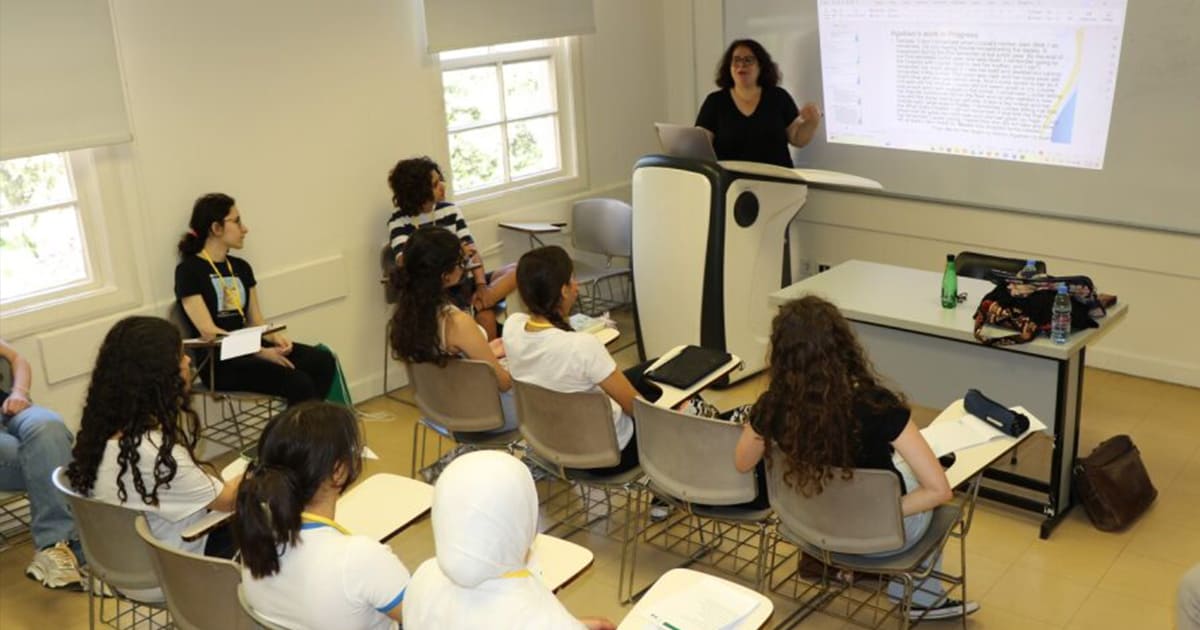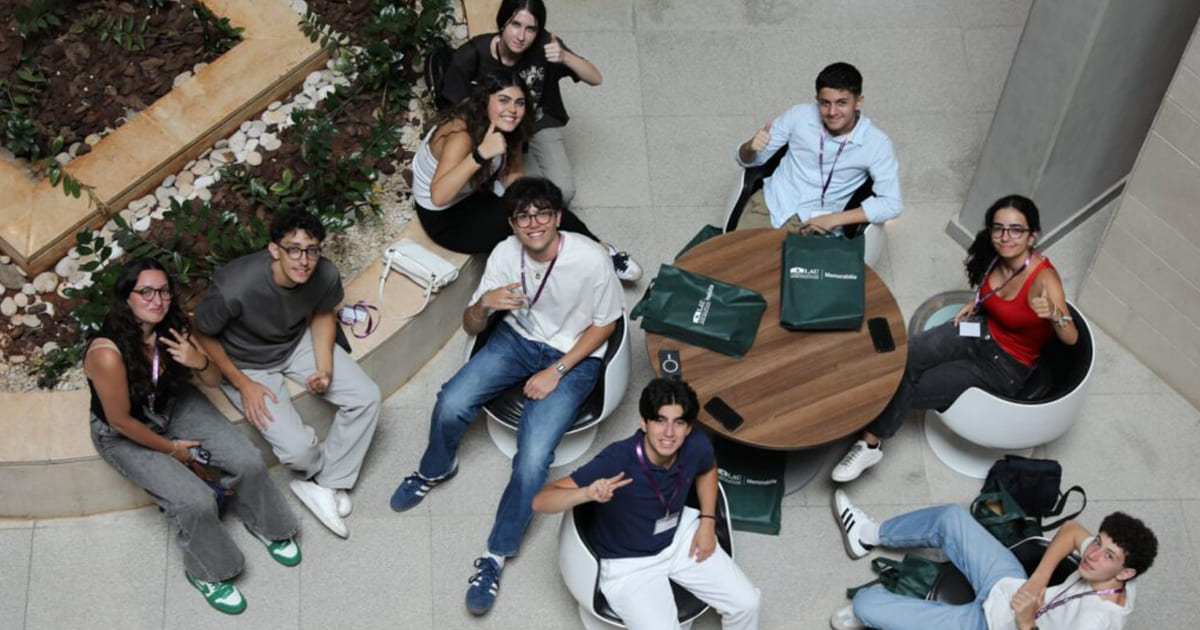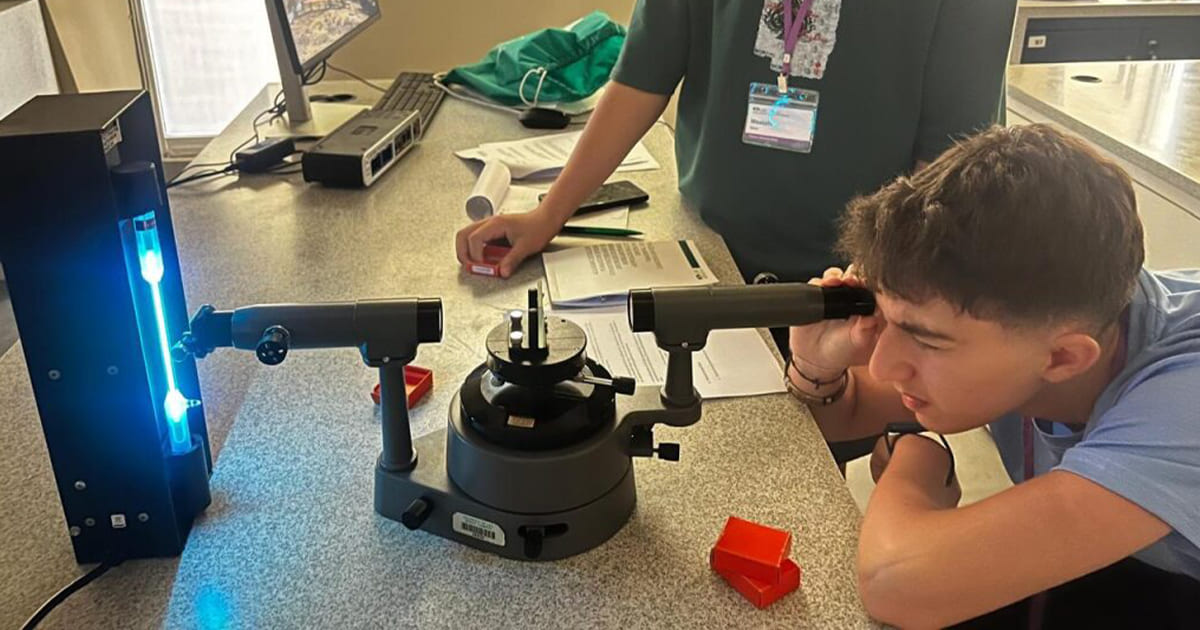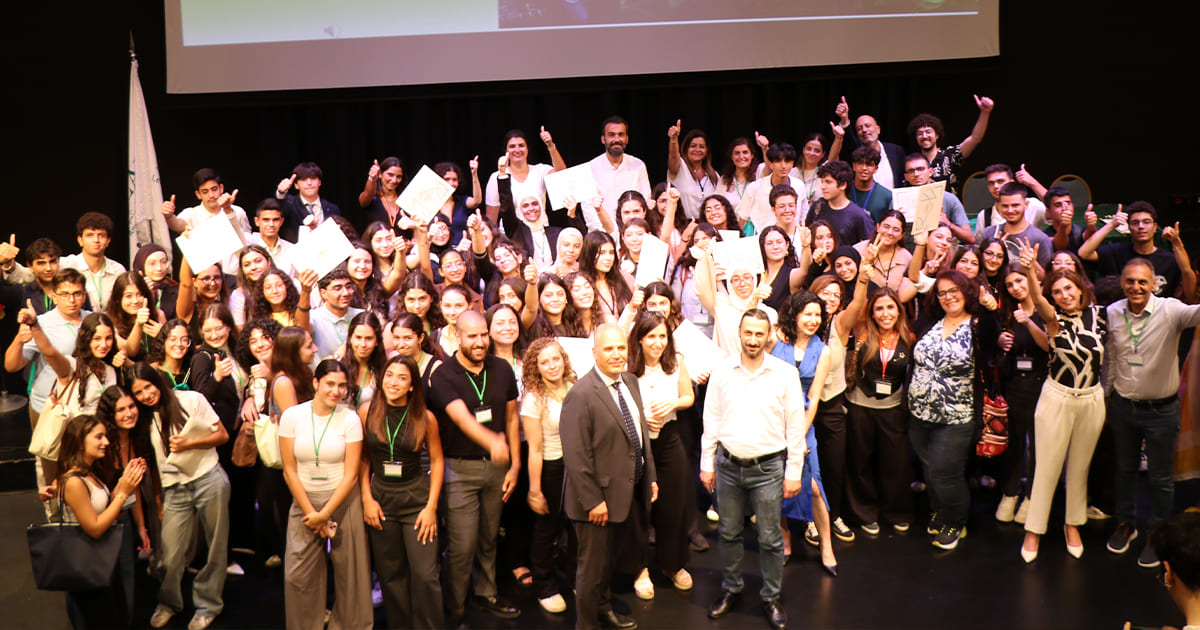Young Champs at Summer Camps Rewarded With Scholarships
The School of Arts and Sciences’ latest iteration of Summer Camps gave students a chance to dive into new subjects and earn scholarships to LAU.
Monday, June 30, 2025, had none of the blues associated with the start of the week for the 293 high schoolers who had enrolled in the School of Arts and Sciences (SoAS) Summer Camps. Divided among 10 camps across both campuses, they engaged in activities tailored to their disciplines that introduced them to higher education learning.
A total of 34 scholarships of up to 30 percent toward the participants’ chosen majors at LAU were awarded to those who had demonstrated noteworthy commitment and engagement.
The number of camps reflected the breadth and diversity of the school’s programs, from physics, TV and film and nutrition to creative writing, computer science and diplomacy, among many others.
This is the first time SoAS has hosted such a large lineup in a single summer, thanks to its structural growth earlier this year from five departments to a total of nine. The expansion has allowed for a broader, more inclusive offering for students to explore their interests in a dynamic university environment.
“Watching these young students file into their camps with open minds reminds me why expanding our contributions really matters,” said SoAS Professor and Associate Dean Sandra Rizk-Jamati, who oversaw the organization and execution of this year’s roll-out. “In our current times, it’s important that our future leaders have wide-ranging opportunities for development and skill-building.”
One of the defining features of this year’s camps was their emphasis on experiential learning, where students, rather than merely being on the receiving end of information, were encouraged to apply their knowledge in practical scenarios and hands-on activities. The programs, therefore, leveraged LAU’s existing academic infrastructure across both campuses to provide a comprehensive experience through innovative learning.
In the Math, Music and AI Summer Camp, for example, students explored how AI can analyze and generate music based on their experimentations with sound waves and music composition using mathematical patterns. Guided by experts in the field, they also learned how to connect abstract mathematical theories, such as trigonometry and harmonics, with tangible outcomes in sound and music.
“The camp gave me a new perspective on how interconnected different fields can be,” noted student Jad Hazem, who won a 30-percent scholarship for his active involvement in the camp. “Watching AI turn equations into melodies based on our input was like seeing two worlds come together in real time.”
Over at the Byblos campus, participants in the Model United Nations (MUN) Diplomacy Summer Camp gained insights into the fast-paced world of politics and took part in interactive workshops, mock debates and role-playing exercises centered around negotiation and global affairs. These activities were run not just by LAU faculty, but also student volunteers and MUN trainers who helped bring the subjects of governance and conflict resolution to life by drawing on their experiences in the domain.
“We’re thrilled to have welcomed so many students to both campuses,” said Associate Professor and Chair of the Department of Political and International Studies Imad Salamey. “You can just feel these young people’s excitement as they learn about diplomacy, grow as future leaders, and find ways to make a real difference in the world.”
High schooler Lynn Nasrallah, who secured a 10-percent scholarship, found this camp “eye-opening because my approach to politics was always through social media and textbooks.” The sessions, she added, helped broaden her understanding of international affairs and allowed her “to become more aware of how complicated global decisions are and how different viewpoints can help me find better solutions.”
What participants seemed to value most was being treated as emerging scholars rather than temporary visitors. Even the university setting itself became part of their curriculum, as they navigated both campuses and academic buildings at their leisure between sessions, used library resources when needed, and attended their classes in labs, studios and study spaces.
Continuing the emphasis on social engagement, this year’s program allowed them to form meaningful connections with peers from diverse academic backgrounds who shared their passions, and to establish miscellaneous and lasting networks.
“This commitment to inclusivity aligns with the university’s broader mission of ensuring that education acts as a transformative force,” added Dr. Rizk-Jamati. “We care about opening doors and showing students what they can achieve when given the chance to believe in themselves and their future.”
As the camps drew to a close, many left with a sharper sense of their academic interests and an even keener appreciation for learning as an active pursuit that extends beyond the walls of a classroom.
